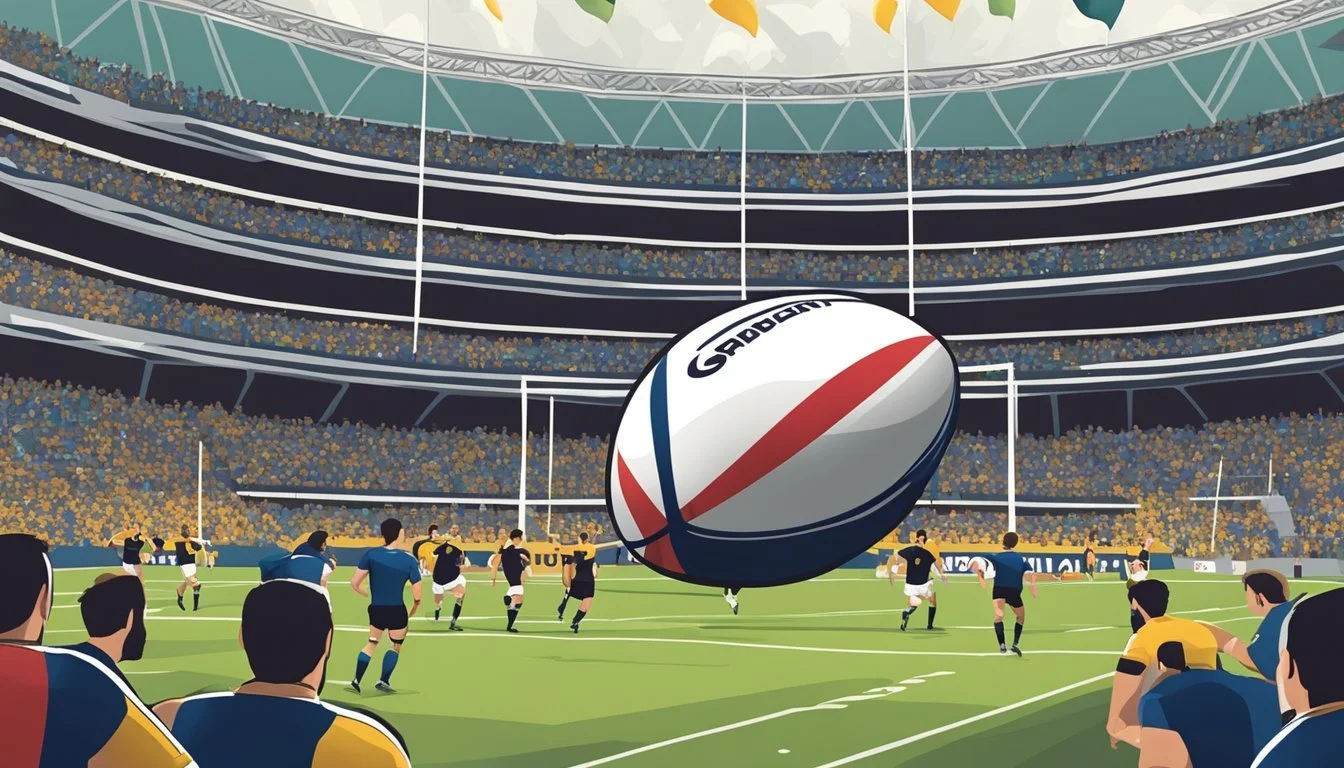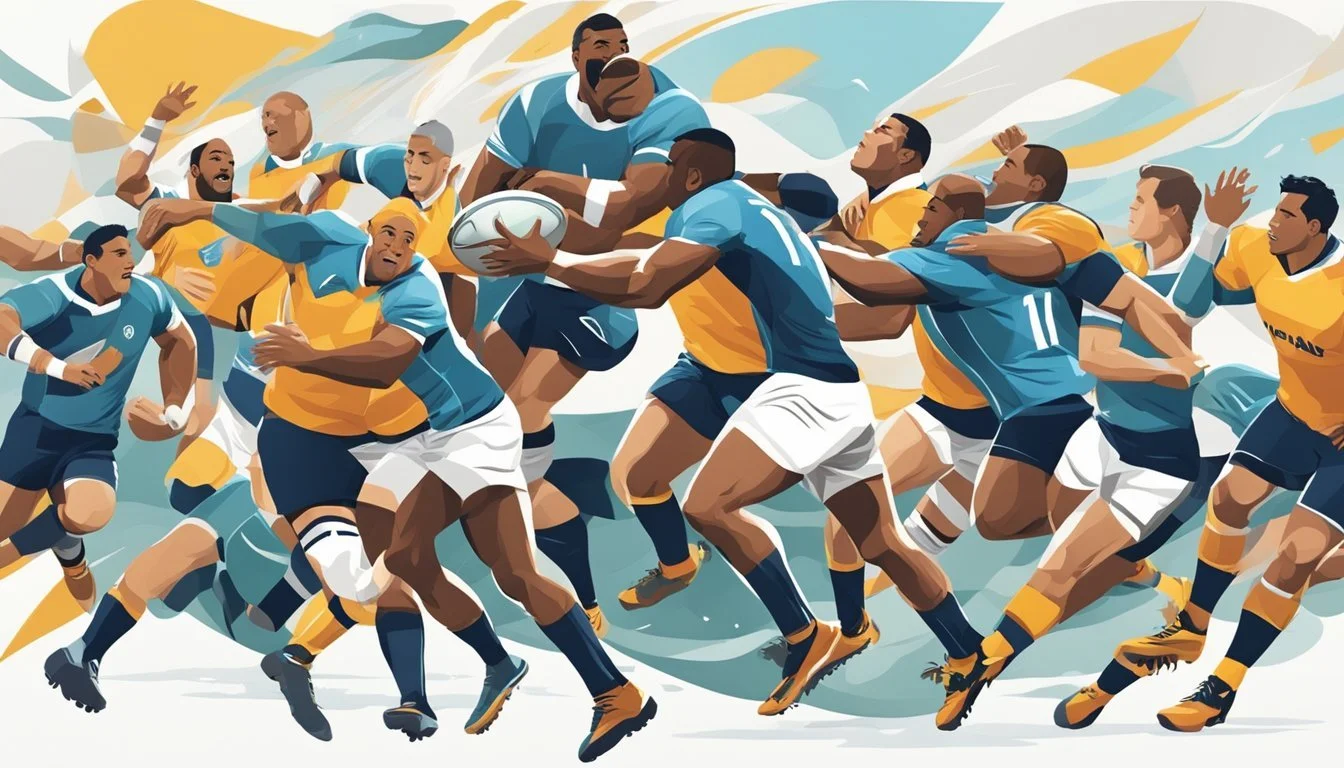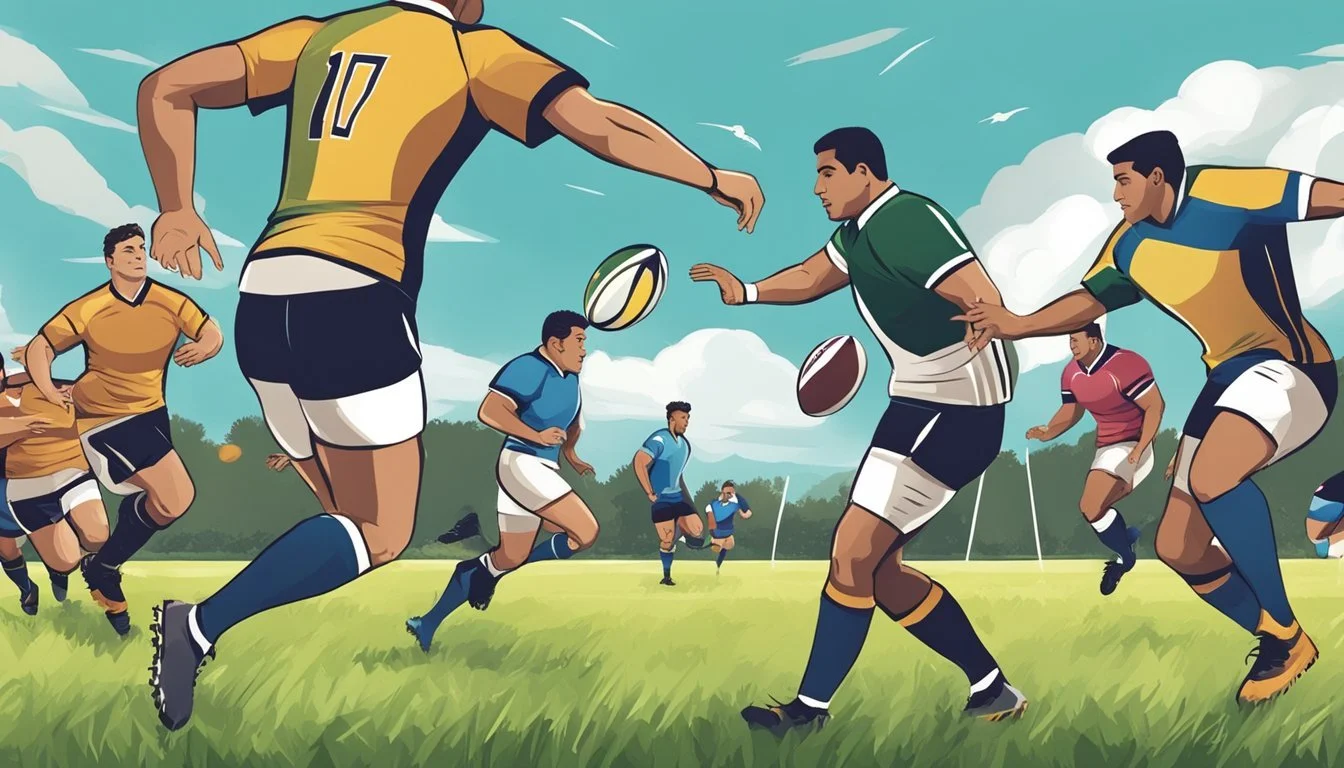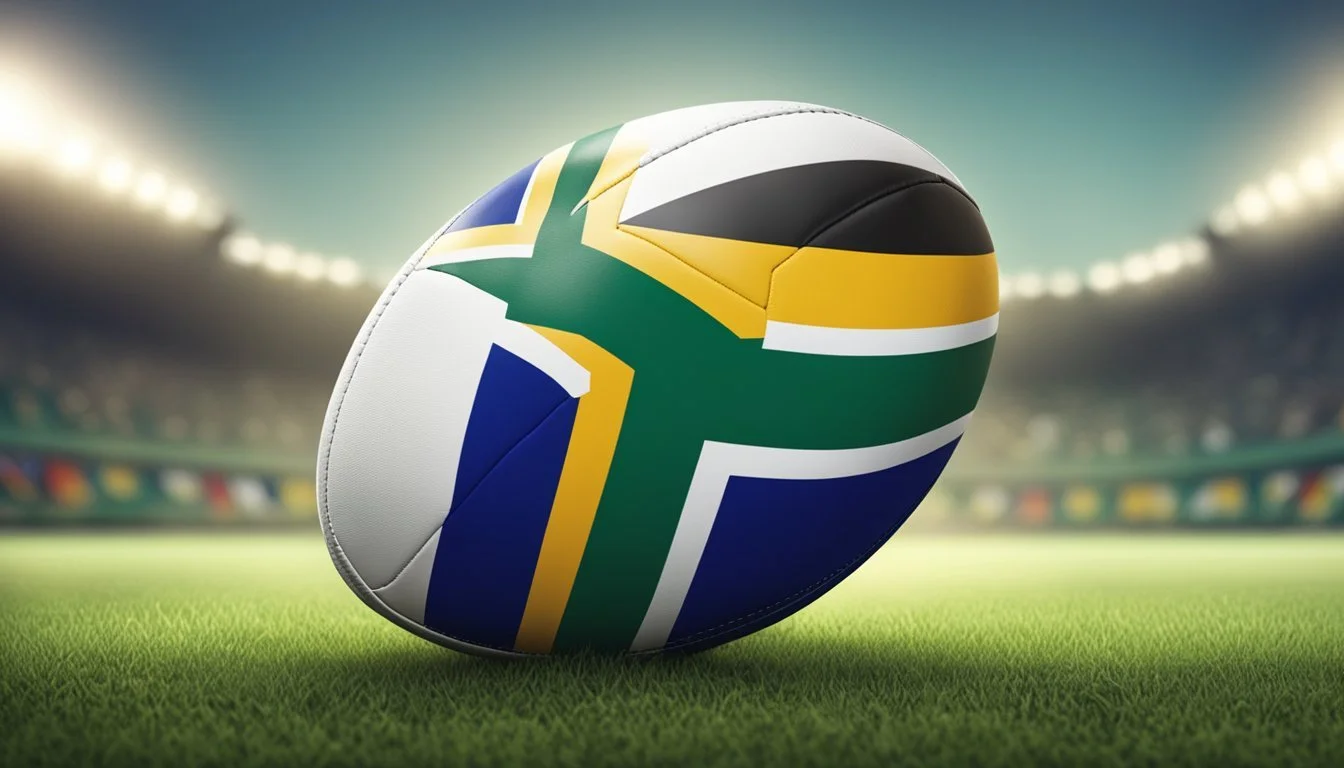Rugby's Reconciliation: Mandela's Real Game Plan in 'Invictus'
Uniting a Nation Through Sport
Nelson Mandela's strategic use of rugby to unite a divided South Africa takes center stage in the film "Invictus." The movie depicts Mandela's visionary approach to reconciliation during the 1995 Rugby World Cup, held in South Africa shortly after the end of apartheid.
Mandela recognized the power of sport to bridge racial divides and foster national unity. By embracing the predominantly white Springboks rugby team, he sent a powerful message of forgiveness and inclusion to both black and white South Africans. This calculated move aimed to bring people together under a common goal and shared national identity.
The film portrays Mandela's efforts to rally support for the Springboks among black South Africans, while simultaneously encouraging the team to reach out to their fellow citizens. Through this dual approach, Mandela sought to create a symbolic victory for the new "Rainbow Nation" that transcended the rugby pitch and resonated throughout South African society.
Context of 'Invictus'
The film 'Invictus' portrays a pivotal moment in South African history, intertwining politics, sports, and national identity. It captures the efforts of Nelson Mandela to unite a deeply divided nation through the power of rugby.
History of Apartheid in South Africa
Apartheid, a system of institutionalized racial segregation, dominated South Africa from 1948 to 1994. It enforced white minority rule and racial classification, restricting the rights of non-white South Africans.
The policy led to widespread discrimination in housing, education, healthcare, and employment. Non-whites faced severe limitations on their freedom of movement and political representation.
International condemnation and economic sanctions intensified pressure on the apartheid government. Internal resistance movements, led by figures like Nelson Mandela, fought for equality and justice.
Nelson Mandela: The Leader of Reconciliation
Nelson Mandela emerged as a key figure in the fight against apartheid. His 27-year imprisonment made him a global symbol of resistance.
Upon his release in 1990, Mandela pursued a path of reconciliation rather than revenge. He became South Africa's first Black president in 1994, leading the country's transition to democracy.
Mandela faced the challenge of uniting a deeply divided nation. He adopted a strategy of forgiveness and inclusion, recognizing the need to address both Black grievances and white fears.
Rugby as a Cultural Symbol
Rugby held a complex position in South African society. For many white South Africans, especially Afrikaners, it was a source of national pride and identity.
The Springboks, South Africa's national rugby team, were seen as a symbol of apartheid by many Black South Africans. The team had only one non-white player before 1995.
Mandela recognized rugby's potential as a tool for reconciliation. He saw the 1995 Rugby World Cup as an opportunity to bring the nation together.
By embracing the Springboks, Mandela challenged both white and Black South Africans to reconsider their perceptions of national identity and belonging.
The 1995 Rugby World Cup
The 1995 Rugby World Cup in South Africa marked a pivotal moment in the nation's history. It became a symbol of unity and reconciliation, transcending sport to impact South African society profoundly.
The Event That United a Nation
South Africa hosted the Rugby World Cup from May 25 to June 24, 1995. The tournament featured 16 teams competing for the Webb Ellis Cup. Matches took place across the country, with the final held at Ellis Park Stadium in Johannesburg.
The Springboks, South Africa's national team, progressed through the tournament with growing support. Their success united people across racial lines, a remarkable achievement in post-apartheid South Africa.
The final pitted South Africa against New Zealand's formidable All Blacks. In a tense match, the Springboks emerged victorious with a score of 15-12. This win was more than just a sporting triumph - it became a powerful moment of national unity.
Impact on National Pride
The 1995 Rugby World Cup significantly boosted South African national pride. President Nelson Mandela's support for the predominantly white Springbok team was a masterful act of reconciliation.
Mandela's appearance at the final, wearing a Springbok jersey, became an iconic image of unity. The sight of black and white South Africans celebrating together was unprecedented.
The tournament showcased South Africa's ability to host major international events. It helped change perceptions of the country both domestically and abroad.
The shared experience of supporting the national team fostered a sense of common identity among South Africans. This newfound unity, though not solving all issues, provided a foundation for further nation-building efforts.
Key Figures in the Event
The 1995 Rugby World Cup in South Africa featured pivotal individuals who played crucial roles both on and off the field. Their actions and symbolism contributed significantly to the event's impact on national reconciliation.
Francois Pienaar: A Springbok's Role
Francois Pienaar captained the South African national rugby team, the Springboks, during the 1995 World Cup. His leadership was instrumental in the team's success. Pienaar formed a unique relationship with President Nelson Mandela, which became a powerful symbol of racial unity.
The captain's willingness to embrace Mandela's vision helped bridge racial divides within the team and country. Pienaar's acceptance of the trophy from Mandela, both wearing Springbok jerseys, created an iconic moment of reconciliation.
Chester Williams: Breaking Racial Barriers
Chester Williams was the only black player on the Springboks' 1995 World Cup squad. His presence challenged the perception of rugby as a white-dominated sport in South Africa. Williams faced significant pressure as a symbol of change and inclusion.
Despite injury setbacks, Williams performed exceptionally well in the tournament. His tries in the quarter-final match against Western Samoa were crucial to South Africa's advancement. Williams' success on the field helped validate the idea of a multi-racial national team and inspired future generations of black rugby players in South Africa.
Cultural Significance of the Movie 'Invictus'
'Invictus' brought Nelson Mandela's vision of reconciliation to a global audience. The film's portrayal of South Africa's journey towards unity through sport resonated with viewers worldwide.
Clint Eastwood's Direction
Clint Eastwood's masterful direction in 'Invictus' captured the essence of a nation in transition. He skillfully balanced the political backdrop with the personal stories of key figures.
Eastwood's approach emphasized authenticity, filming on location in South Africa. This decision added depth to the movie's visual storytelling.
His restrained style allowed the powerful narrative to unfold naturally. Eastwood focused on subtle character interactions, highlighting the gradual process of reconciliation.
Morgan Freeman's Portrayal of Mandela
Morgan Freeman's performance as Nelson Mandela was widely praised for its accuracy and nuance. Freeman captured Mandela's distinctive voice, mannerisms, and charismatic presence.
His portrayal showcased Mandela's wisdom and strategic thinking. Freeman conveyed the leader's ability to inspire others and bring people together across racial divides.
The actor's embodiment of Mandela's forgiveness and vision for a unified South Africa was particularly moving. Freeman's performance helped audiences understand Mandela's crucial role in the country's transformation.
Legacy of the 1995 Rugby World Cup
The 1995 Rugby World Cup left an indelible mark on South Africa's journey towards reconciliation and unity. Its impact extended far beyond the rugby field, shaping the nation's social and political landscape for years to come.
Continued Efforts Towards Unity
The tournament's success inspired ongoing initiatives to foster national cohesion. The Springboks became a symbol of unity, with their diverse fanbase growing steadily. Rugby development programs expanded into previously underserved communities, providing opportunities for young players of all backgrounds. The government and rugby authorities collaborated on inclusivity measures, aiming to make the sport more representative of South Africa's population.
Francois Pienaar and other 1995 team members became ambassadors for unity, using their platform to promote reconciliation. Their efforts helped maintain the momentum generated by the World Cup victory.
Rugby in Post-Apartheid South Africa
Rugby's transformation in post-apartheid South Africa was gradual but significant. The sport evolved from a predominantly white Afrikaner pastime to a more inclusive national passion. Quotas were introduced to increase diversity in professional teams and development squads.
In 2018, Siya Kolisi became the Springboks' first Black captain, marking a milestone in the sport's journey. His appointment symbolized progress in rugby's efforts to reflect South Africa's demographics. The 'Rainbow Nation' ideal, championed during the 1995 World Cup, continued to influence rugby's role in society.
The Springboks' success in subsequent World Cups reinforced rugby's status as a source of national pride. The sport remains a powerful tool for unity, though challenges in achieving full representation persist.
Comparative Analysis
Sports have the power to unite nations and foster reconciliation. Rugby and football, in particular, have played significant roles in shaping national identities and bridging societal divides.
Rugby vs. Football World Cup
Rugby's World Cup and football's FIFA World Cup differ in their global reach and cultural impact. The Rugby World Cup, while immensely popular in certain countries, has a more limited international following compared to football's global appeal. Rugby's strongholds include nations like South Africa, New Zealand, and England, while football enjoys widespread popularity across continents.
The 1995 Rugby World Cup in South Africa attracted 1.1 million spectators, whereas the 1994 FIFA World Cup in the USA drew 3.6 million attendees. However, the Rugby World Cup's impact on South Africa was arguably more profound due to its timing and political context.
Joel Stransky's winning drop goal in the 1995 Rugby World Cup final became a symbol of national unity, etching itself into South African sporting lore.
Impact of Sports on Socio-Political Context
Sports events can serve as powerful catalysts for social change and national reconciliation. The 1995 Rugby World Cup in South Africa exemplified this potential, becoming a turning point in the country's post-apartheid era.
Nelson Mandela's strategic use of rugby, traditionally associated with white Afrikaners, to promote national unity was a masterstroke in reconciliation efforts. By embracing the Springboks, Mandela bridged racial divides and fostered a sense of shared African identity.
In contrast, football's impact on socio-political issues has often been more gradual. While the sport has addressed racism and discrimination, its effects are typically less concentrated than rugby's role in South Africa's transformation.
Both sports have demonstrated the ability to bring people together, transcending racial, ethnic, and social boundaries. However, rugby's impact in South Africa remains a unique case study in sport-driven national reconciliation.
Reflections on Nelson Mandela's Strategy
Nelson Mandela's approach to the 1995 Rugby World Cup exemplified his visionary leadership and commitment to national unity. By embracing the Springboks, a team long associated with apartheid, Mandela made a bold statement about reconciliation.
His decision to wear the Springbok jersey at the final match was a powerful symbolic gesture. It signaled to white South Africans that they had a place in the new Rainbow Nation, while challenging black South Africans to move beyond past grievances.
Mandela recognized rugby's potential as a unifying force in a deeply divided country. He saw the sport as a language that could bridge racial and cultural gaps, particularly among the youth.
The strategy was not without risks. Mandela faced criticism from some of his supporters who viewed his support of the predominantly white rugby team as a betrayal.
Despite these challenges, Mandela's gambit paid off. The sight of him presenting the World Cup trophy to Francois Pienaar became an iconic moment of national reconciliation.
Mandela's use of sport as a tool for nation-building demonstrated his political acumen. He understood that symbolic acts could be as powerful as policy changes in shaping public sentiment.
The success of this strategy lay in its authenticity. Mandela's genuine enthusiasm for the team and the sport made his outreach credible to both black and white South Africans.
Journey of the Springboks Post-Invictus
The Springboks' journey after the 1995 Rugby World Cup victory was marked by continued success and challenges. Their triumph united South Africa and elevated rugby's status nationwide.
In subsequent years, the team maintained a strong presence on the international stage. They clinched the Tri-Nations title in 1998 and 2004, showcasing their competitive edge against top rivals.
The Springboks achieved another World Cup victory in 2007, reinforcing their global dominance. This win further solidified rugby's role in fostering national pride and unity.
Transformation efforts within the team gained momentum, aiming to make it more representative of South Africa's diverse population. This process, while sometimes contentious, reflected broader societal changes.
On-field performances fluctuated, with periods of brilliance interspersed with disappointing results. However, the team's symbolic importance to national unity remained constant.
The Springboks' journey post-Invictus exemplifies sport's power to transcend boundaries. Their ongoing evolution mirrors South Africa's own path of reconciliation and progress.
Inspiration from 'Invictus'
'Invictus' draws inspiration from the true story of Nelson Mandela's strategic use of rugby to unite South Africa. The film portrays Mandela's visionary leadership and his collaboration with Francois Pienaar, captain of the national rugby team.
Mandela recognized the power of sport to bridge racial divides. He saw an opportunity in the 1995 Rugby World Cup to bring together a nation still grappling with the aftermath of apartheid.
The movie's title comes from a poem that sustained Mandela during his imprisonment. "Invictus" means "unconquered" in Latin, reflecting the resilience Mandela sought to instill in his country.
John Carlin's book "Playing the Enemy" provided the source material for the film. It details how Mandela's charm offensive and political acumen transformed the Springboks from a symbol of white supremacy into a unifying force.
The film showcases pivotal moments of reconciliation. Mandela's support for the predominantly white rugby team surprised many black South Africans, challenging their preconceptions.
'Invictus' highlights the transformative power of forgiveness and leadership. It demonstrates how sports can be a vehicle for social change, transcending racial and cultural boundaries.







